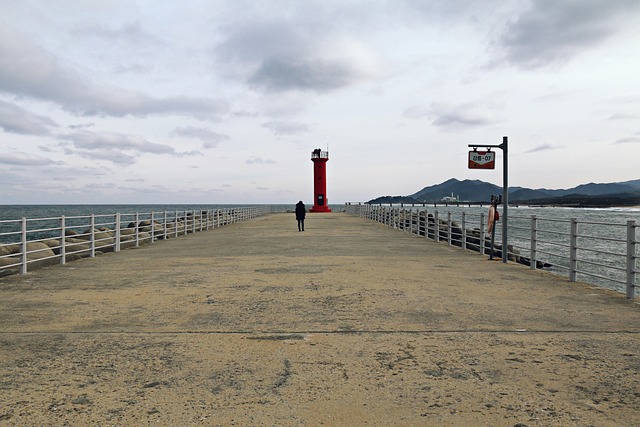
In today's fast-paced world, travel has become an essential part of our lives. However, managing our finances while exploring new destinations can be a daunting task.
In this article, we will delve into the art of travel budgeting, equipping you with the knowledge and skills to make the most of your travel experiences without breaking the bank.
From choosing the right destination to estimating costs and planning meals, we will provide practical tips and insights to help you achieve financial freedom while satisfying your wanderlust.
Choose Destination
When considering travel budgeting, it is essential to carefully select the destination. This decision plays a significant role in determining the overall cost of your trip.
To start, finding cheap accommodations can be a game-changer for budget travelers. Researching hotels, hostels, or vacation rentals in advance can help you secure the best deals and save money. Additionally, exploring alternative accommodation options like Airbnb or Couchsurfing can offer affordable alternatives to traditional hotels.
Another critical aspect is researching local transportation options. Familiarize yourself with public transportation systems, such as buses, trains, or subways, as they are often cheaper than taxis or rental cars. Consider purchasing city passes or travel cards, which offer unlimited access to public transport for a fixed price.
Estimate Travel Costs
To accurately plan your travel budget, it is important to estimate the costs associated with your trip. Here are some key expenses to consider:

Accommodation expenses: Research different types of accommodations such as hotels, hostels, or vacation rentals. Consider the location, amenities, and prices to find the best fit for your budget.
Transportation costs: Determine how you will get to your destination and calculate the costs accordingly. Include airfare, train or bus tickets, or fuel expenses if you are driving. Don't forget to factor in transportation within your destination, such as public transportation or rental cars.
Plan Meals
One crucial aspect of travel budgeting is strategically planning meals. By creating a grocery list and researching local food options, travelers can save money and enjoy delicious meals while on the go.
Before embarking on a trip, take the time to research the local cuisine and popular food markets in the area. This will allow you to plan meals around affordable and authentic options.
Additionally, consider cooking some of your meals instead of eating out for every meal. This can be done by booking accommodations with kitchen facilities or utilizing communal kitchens in hostels. By shopping for groceries and cooking your own meals, you can save a significant amount of money and have more control over your food expenses.
Set Daily Budget
To effectively manage your travel expenses, it is essential to establish a daily budget that accounts for all aspects of your trip, including accommodation, transportation, meals, and activities. Setting a daily budget allows you to have control over your spending and ensures that you stay within your financial limits while still enjoying your trip.
Here are some tips to help you set your daily budget:

- Determine your overall travel budget and divide it by the number of days you will be traveling.
- Prioritize your spending by allocating more money to activities and experiences that are most important to you.
- Leave room for budget flexibility to accommodate unexpected costs or opportunities that may arise.
- Research average costs of meals, transportation, and activities in your destination to get a sense of how much to allocate for each category.
- Track your daily expenses to stay on top of your budget and make adjustments if necessary.
Consider Travel Insurance
Considering travel insurance is a crucial step in ensuring financial protection and peace of mind during your trip. It is important to read the fine print of any travel insurance policy to fully understand what coverage it provides.
There are different types of travel insurance coverage available, including:
Trip cancellation/interruption insurance: This coverage will reimburse you for non-refundable expenses if you have to cancel or cut short your trip due to unforeseen circumstances.
Medical coverage: This type of coverage is essential to cover any medical expenses you may incur while traveling.
Baggage coverage: Baggage coverage will reimburse you for lost, damaged, or stolen luggage.
Emergency assistance: This coverage provides support and guidance in case of emergencies while you are traveling.
Frequently Asked Questions
How Do I Find Affordable Accommodation Options While Traveling?
Finding budget friendly accommodations while traveling can be achieved by researching and comparing prices, considering alternative options such as hostels or vacation rentals, booking in advance, and utilizing online platforms to find deals and discounts. These strategies can help save money on lodging expenses.

What Are Some Tips for Saving Money on Transportation During My Trip?
Finding cheaper transportation options is crucial for saving money on your trip. Look for discounted public transportation passes, consider using ride-sharing services, and explore walking or biking as alternatives.
How Can I Manage My Expenses and Keep Track of My Budget While Traveling?
Managing expenses and tracking your budget while traveling can be achieved through various strategies and the use of expense tracking apps. These tools help you monitor your spending, set limits, and make informed decisions to ensure a successful and cost-effective journey.
Are There Any Ways to Reduce the Cost of Activities and Sightseeing During My Trip?
There are several ways to reduce the cost of activities and sightseeing during your trip. Look for discounted tickets for attractions and consider saving money on food and dining options by exploring local markets and budget-friendly restaurants.
What Are Some Common Mistakes to Avoid When Budgeting for Travel?
Common mistakes in travel budgeting include not setting a realistic budget, underestimating expenses, not researching prices in advance, and overspending on unnecessary items. To avoid these mistakes, it is important to plan ahead, track expenses, and prioritize essential expenses.
 Travel AdviceDigital NomadsExPat LivingTravel Content Creation HacksPlaces to VisitAdventure TravelPrivacy PolicyTerms And Conditions
Travel AdviceDigital NomadsExPat LivingTravel Content Creation HacksPlaces to VisitAdventure TravelPrivacy PolicyTerms And Conditions
